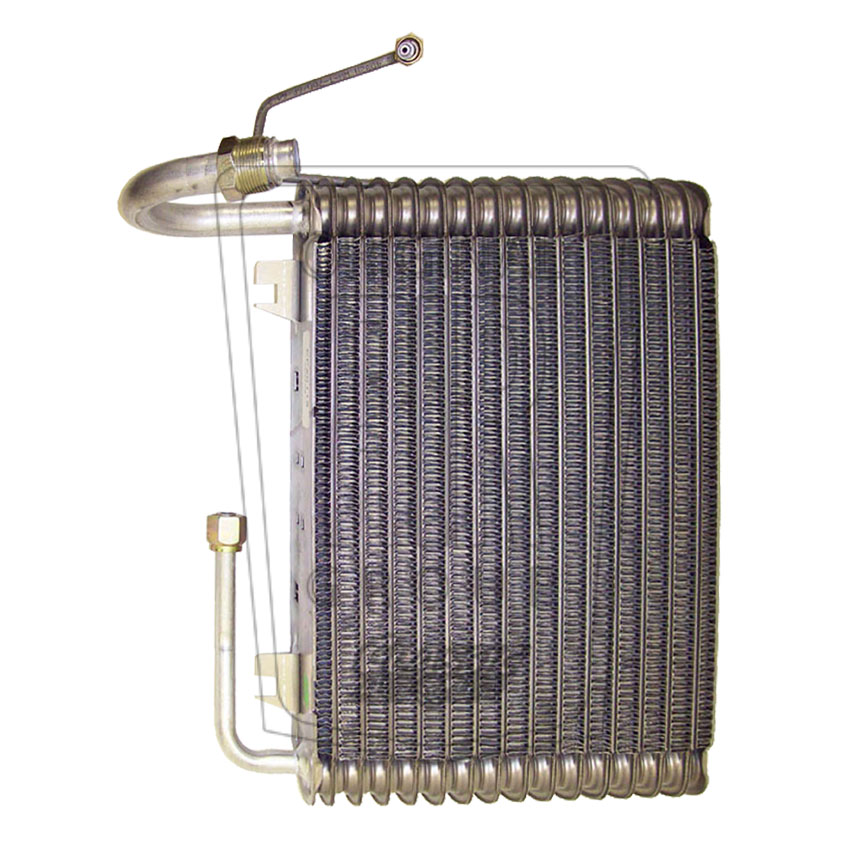- Register
- Log in
- Wishlist (0)
- Cart (0) You have no items in your shopping cart.
Evaporators
Evaporators
What does an evaporator do?
The evaporator is the coil that is located in a box (called an evaporator housing or plenum) mounted behind the dash or on the firewall in the engine compartment. It receives liquid refrigerant that is metered into it from the expansion valve. As the refrigerant enters the evaporator, it boils into gas form, causing the coils & fins to frost up. The air that is forced through the frigid evaporator coil is ultimately pushed through various ducts and louvers before entering the passenger compartment. The evaporator, along with the Condenser, is the most important part in the a/c system at determining how cold vent temperature is.
Why restore or replace your evaporator?
Over time, many things can decrease the efficiency of your car’s evaporator. Dirt & debris can block cooling fins and restrict or block air flow, causing marginal or even hot vent temperature or it can simply develop a leak. In some cases, a more efficient replacement evaporator is available. When converting to 134a, it is highly recommended to replace your original evaporator with a more efficient coil if available. More on Converting to 134a!
Classic Auto Air offers new, replacement evaporators for 1967-69 big block Camaros & Firebirds and 1963-65 Corvettes and restoration & duplicating services for situations when a new, replacement is not available.
Buy a New Evaporator Coil
Classic Auto Air also offers new high performance replacement evaporators for 1967-69 big block Camaros & Firebirds and 1963-65 Corvettes.
Evaporator Reconditioning
Classic Auto Air can also recondition your original evaporator.
If reusing an original GM evaporator, it is extremely important to make sure that it is clean and free of contaminants. Most GM evaporators use a plate & fin
design, which has narrow passages and internal ridges. These passages and ridges can contain sludge-like contaminants that clog and reduce the evaporator’s ability to work properly. It is extremely important that the plate & fin evaporator is flushed properly to insure passages are clear for proper function, but that this is performed off of the car so that flushing agents don’t end up trapped in the ridges that line the bottom of the evaporator. Trapped flushing agents that are left in the system can cause system failure just like any other contaminant.
Evaporator reconditioning consists of:
- Pressure test
- Flush clean internally
- Acid wash externally
- Straighten fins
Call or Message Us!
Evaporator – Box Restoration
This is a restoration of the whole unit that houses the evaporator, including restoring the evaporator itself.
Evaporator plenum restoration services include:
- Disassemble, inspect, clean and replace damaged or missing parts
- Clean & repair fiberglass housing
- Recondition or replace evaporator
- Recondition blower motor
- Reassemble
We also restore under dash evaporator units. Call or Message Us!

